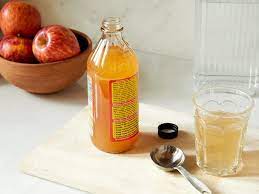White Vinegar Substitute: Exploring Alternatives for Your Cooking Needs
In the world of cooking, white vinegar is a common ingredient used for various purposes. From pickling to salad dressings, its tangy flavor and acidity add a distinctive touch to many dishes. However, there may be situations when you find yourself out of white vinegar or simply prefer to use a substitute. In this article, we will delve into some excellent alternatives for white vinegar that can elevate your culinary creations without compromising on taste or quality.
1. Lemon Juice:

Lemon Juice
Lemon juice is a versatile substitute for white vinegar due to its acidity and bright flavor. It works well in dressings, marinades, and even in pickling recipes. The tartness of lemon juice can add a refreshing twist to your dishes, making it a suitable replacement for white vinegar.
2. Apple Cider Vinegar:

Apple Cider Vinegar
Apple cider vinegar is another popular alternative to white vinegar. It possesses a mild, fruity flavor that complements a wide range of recipes. However, keep in mind that apple cider vinegar has a slightly sweeter taste compared to white vinegar. Adjust the quantity accordingly to balance the flavors in your dish.
3. Rice Vinegar:
Rice vinegar, commonly used in Asian cuisine, is a fantastic substitute for white vinegar in delicate recipes. It has a mild and slightly sweet taste, making it ideal for dressings, sushi rice, and marinades. Its gentle flavor profile can enhance the subtleties of your dish without overpowering other ingredients.
4. White Wine Vinegar:
If you have white wine vinegar on hand, it can serve as a suitable replacement for white vinegar. Similar to white vinegar, it has a clean and crisp taste. However, white wine vinegar offers a more nuanced flavor profile, lending a sophisticated touch to your dishes. Use it in recipes that can benefit from the subtle undertones of wine.
5. Red Wine Vinegar:
While red wine vinegar differs from white vinegar in terms of color and flavor, it can still be used as an alternative in certain recipes. Its robust and tangy taste pairs well with heartier dishes like stews and marinades. Keep in mind that the color of the vinegar may impact the appearance of your dish.
6. Balsamic Vinegar:
Although balsamic vinegar has a distinct taste, it can be used as a substitute for white vinegar in certain recipes. Due to its rich and sweet flavor, it works best in salad dressings, sauces, and glazes. Use it sparingly, as its strong taste can easily overpower other ingredients.
7. Champagne Vinegar:
For those seeking a delicate and refined substitute for white vinegar, champagne vinegar fits the bill. It offers a subtle, slightly acidic taste that complements lighter dishes. Its effervescence can add a touch of elegance to dressings, vinaigrettes, and seafood recipes.
When it comes to cooking, the unavailability of white vinegar should not hinder your culinary adventures. With the aforementioned substitutes at your disposal, you can continue to create flavorful and delicious dishes. Whether you opt for the tanginess of lemon juice, the fruitiness of apple cider vinegar, or the subtlety of rice vinegar, each alternative provides its unique contribution to your recipes. Experiment with these substitutes and embrace the diverse flavors they bring to your culinary creations.